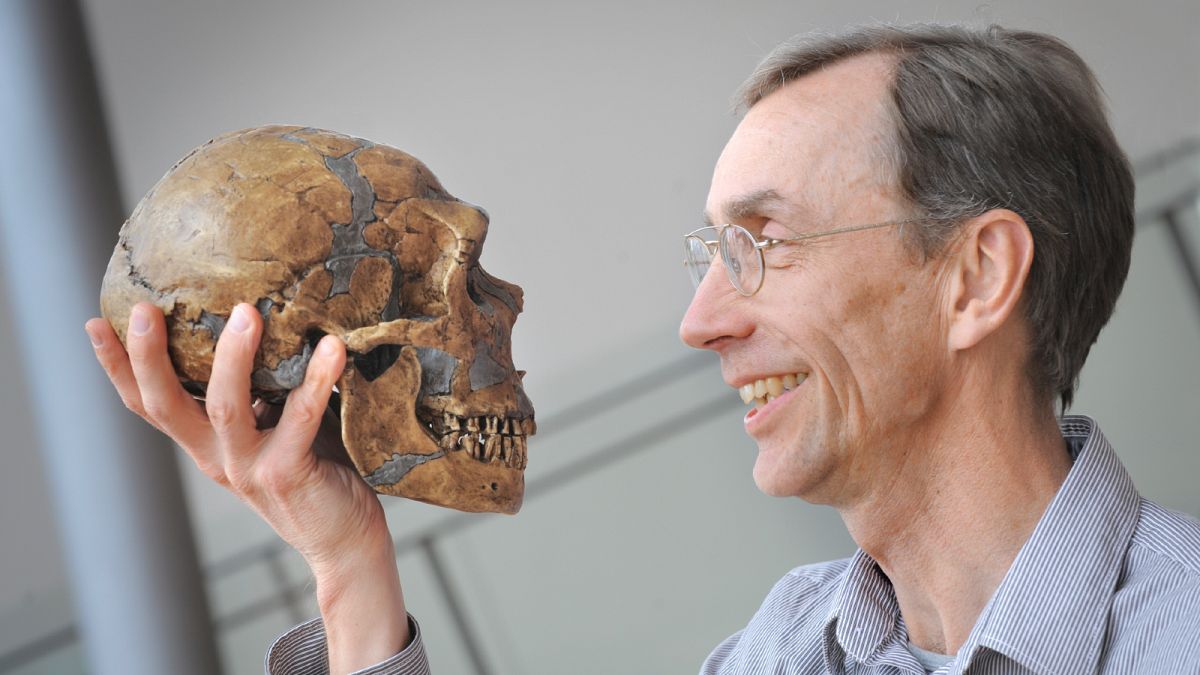He was given the prize for his discoveries around human evolution.
Swedish scientist Svante Paabo has been awarded this year's Nobel Prize in Physiology or Medicine for his "groundbreaking discoveries" around human evolution.
His work helped reveal key insights into our immune systems and what makes humans unique compared with our extinct cousins, the award's panel said.
Paabo spearheaded the development of new techniques that allowed researchers to compare the genome of modern humans and that of Neanderthals and Denisovans.
“Svante Paabo’s groundbreaking discoveries have provided important new knowledge regarding our evolutionary history,” said Anna Wedell, chair of the Nobel Committee.
While Neanderthal bones were first discovered in the mid-19th century, only by unlocking their DNA have scientists been able to fully understand the links between species.
This included the time when modern humans and Neanderthals diverged as a species, determined to be around 800,000 years ago,
“Paabo and his team also surprisingly found that gene flow had occurred from Neanderthals to Homo sapiens, demonstrating that they had children together during periods of co-existence," Wedell said.
This transfer of genes between hominin species affects how the immune system of modern humans reacts to infections, such as the coronavirus. People outside Africa have 1-2% of Neanderthal genes.
Paabo and his team also managed to extract DNA from a tiny finger bone found in a cave in Siberia, leading to the recognition of a new species of ancient humans they called Denisovans.
Wedell described this as “a sensational discovery” that subsequently showed Neanderthals and Denisovan to be sister groups which split from each other around 600,000 years ago. Denisovan genes have been found in up to 6% of modern humans in Asia and Southeast Asia, indicating that interbreeding occurred there too.
“By mixing with them after migrating out of Africa, homo sapiens picked up sequences that improved their chances to survive in their new environments,” said Wedell. For example, Tibetans share a gene with Denisovans that helps them adapt to high altitudes.
“We already know that it affects our defences against different types of infections for instance, or how we can cope with high altitude,” said Nils-Goran Larsson, a member of the Nobel panel. "But like all great discoveries in basic science, more and more insights will come over the next decades.”
Paabo, 67, performed his prizewinning studies in Germany at the University of Munich and at the Max Planck Institute for Evolutionary Anthropology in Leipzig. Paabo is the son of Sune Bergstrom, who won the Nobel prize in medicine in 1982.
Thomas Perlmann, secretary of the Nobel Committee, announced the winner Monday at the Karolinska Institute in Stockholm, Sweden.
The medicine prize kicked off a week of Nobel Prize announcements. It continues Tuesday with the physics prize, with chemistry on Wednesday and literature on Thursday.
The 2022 Nobel Peace Prize will be announced on Friday and the economics award on 10 October.
